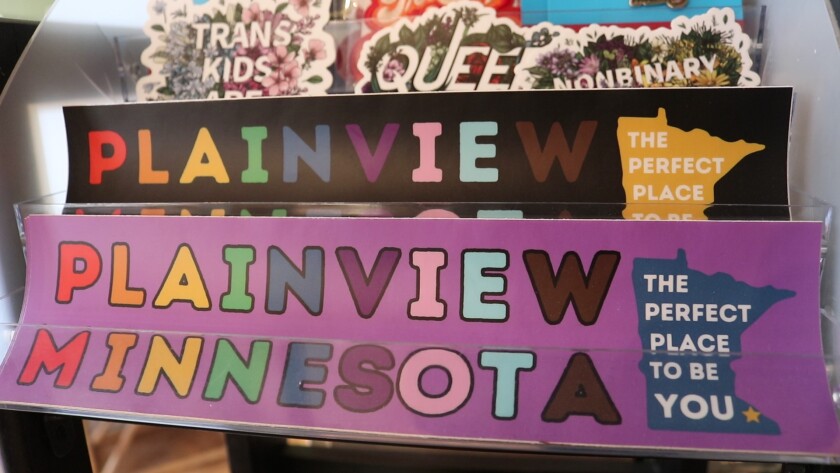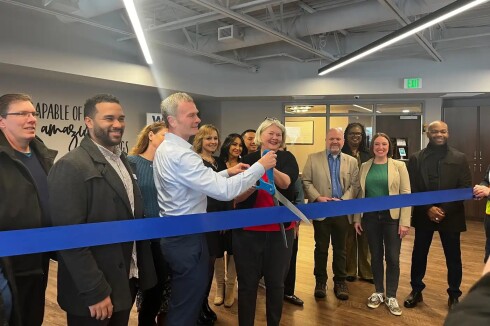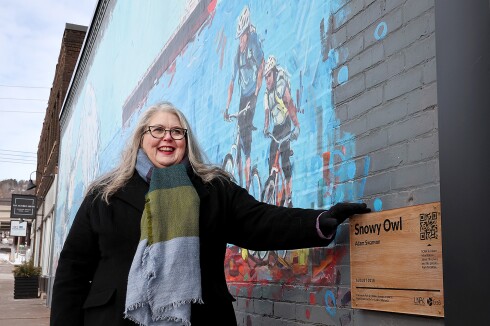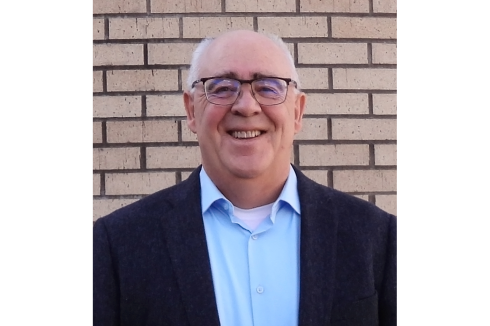PLAINVIEW, Minn. — Annie Jurrens is aware of a tsunami happening in her industry, but her business operates on its own wavelength.
Jurrens is the owner of Refill Goods in Plainview, a low-waste general store that offers sustainable, local options and a welcoming community space.
ADVERTISEMENT
According to a recent report by the Center for Rural Policy and Development, an upcoming mass transition of Minnesota businesses will cause a "threat to the economic and social life of rural areas" in the state.
Some 53% of Minnesota business owners are over age 55, according to data from the U.S. Census, and 52,000 out of the 525,000 businesses are expected to change hands or dissolve in the next five to 10 years. The transition from baby boomer business owners to the next generation of owners is referred to as the "silver tsunami."
Jurrens said she's noticed a transition in rural business in the past few years, and younger business owners seeing the need to do things differently than previous generations.
"I think rural businesses in a small town need to bring something different to the table, and there is a transition, and there is tension between the way things have always been done and the way things need to be done moving forward," Jurrens said. "I'm definitely on the front lines of trying something new in a small, rural town, and there definitely is tension and pushback there, but it's also something that people want, and so we're going to keep doing it."
A lot happened for the business in 2024, Jurrens said, including moving locations to downtown Plainview, adding more local consignors to the store and hosting several community events, including a Pride festival this summer which brought regional attention.

"We had Plainview's first Pride event, which was amazing," Jurrens said. "I cried the whole day. It was beautiful."
The summer represented what Jurrens had in mind when she founded Refill Goods, a space that prioritized community over one fueled for profit.
ADVERTISEMENT
"We are a business, and we sell stuff, but what we really like is being a community space, and being a space where people can come gather, meet neighbors and really make a positive impact on our community," she said.
Learning how to profit, pivot
Being profitable is also still a goal for Refill Goods, Jurrens said, and the business isn't there yet.
"Being a basic retail store, I don't think I can hit those (profitable) numbers, because we don't have the foot traffic, and we don't have people just stumbling upon our business," she said.
She said there are separate challenges that come with being a retail space in a small town — and being a business owner not afraid to share her personal opinions and beliefs.
"People say you are alienating your customer base, and I say, listen, you're not actually my target market— this town has a lot of people in it that are not my target market," Jurrens said. "We're here for the girls, the gays and the theys."

Jurrens said being able to pivot is key for all businesses but particularly small ones in rural communities. She said Refill Goods is in the process of pivoting to a more community-oriented storefront that has political and social meeting space.
"I think that's super important for small businesses going forward, being able to adjust to the needs of the community, not just this is how we've always done it, so this is how we need to do it," Jurrens said.
ADVERTISEMENT
According to a study by the Exit Planning Institute, approximately 89% of Minnesota’s small businesses are owned in part or in full by family. Jurrens said passing down Refill Goods to her children isn't something that's on her mind, but the entire family — which includes her husband and three children — are essential to the operation.
"We're not necessarily assuming that our kids want to do this business, but we do think that there's value in them being here, seeing what we're doing and seeing the connections that we're making, and they're learning a lot," Jurrens said. "They're little entrepreneurs themselves, so whether they want to take over the business someday, or whether it will still exist someday — we're too young of a business to even know if that will happen."
Research by the Center for Rural Policy and Development suggests that choosing to locate a business in a rural community is a decision motivated by lifestyle. Jurrens said her family lived in the Twin Cities and a rural community in Canada before deciding to relocate to Plainview, which offers what she said they wanted for themselves and their children.
"The fact that we do know all our neighbors, that we have people doing cookie drop offs here, and building that community, and have people come in and chat with us all the time about things that are actually impacting our community," she said of living and having a business in Plainview. "We can make connections, and we can make this an even better place to live and work. We're not necessarily a profitable business yet, but I do believe we're having an impact, and I think there is potential for us to be profitable in the future."













